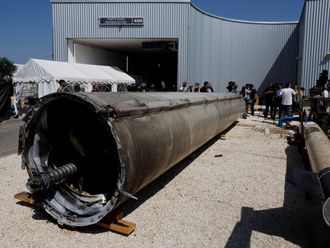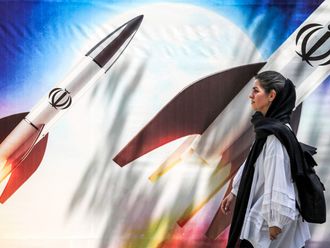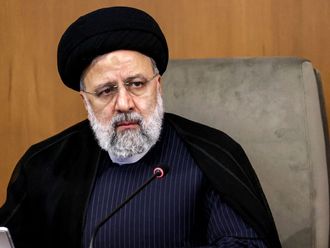Washington: After more than two years on the sidelines, President Barack Obama is going to start arming Syrian rebels but that is unlikely to reverse the recent momentum won by the government and its Lebanese Shi’ite Hezbollah allies any time soon.
Obama’s decision to send US weapons to opposition fighters came as the White House announced it had proof that President Bashar Al Assad’s government had used chemical weapons against rebel forces in the civil war.
The US government made clear that even though it was now confirmed that Al Assad had crossed a chemical weapons “red line” set by Obama, Washington intends to move cautiously — and in concert with its allies — on what steps to take.
With rebel forces desperate for weapons after battlefield setbacks like the fall of the strategic town of Qusair, Obama’s deputy national security adviser, Ben Rhodes, said only that the president had decided to ramp up military support to the opposition both in “scope and scale.”
A US official said this would include sending weapons to the Syrian insurgents. That marks a shift in longstanding US policy against lethal aid, which sought to keep war-weary Washington from being drawn into another conflict in the Middle East.
Obama administration officials have said that any arming of the rebels would likely be limited to small arms and ammunition rather than anti-aircraft weapons, which could have an immediate impact on the battlefield.
The New York Times reported that the supplies, to be coordinated by the Central Intelligence Agency, might include anti-tank weapons.
The arrival of thousands of seasoned, Iran-backed Hezbollah fighters to help Al Assad combat the mainly Sunni rebellion has shifted momentum in the two-year-old war, which the United Nations said on Thursday had killed at least 93,000 people.
Thursday’s announcements followed a series of urgent White House meetings on Syria amid mounting pressure at home and abroad for Obama to act more forcefully in the conflict, including a sharp critique of his hesitant policy from former President Bill Clinton. The meetings reportedly exposed divisions among Obama’s aides on the issue.
The White House unveiled what it called conclusive findings on Al Assad’s chemical weapons, saying intelligence officials believed that 100 to 150 people had died in the attacks.
“Our intelligence community assesses that the Al Assad regime has used chemical weapons, including the nerve agent sarin, on a small scale against the opposition multiple times in the last year,” Rhodes told reporters.
The chemical weapons findings, Rhodes asserted, had prompted Obama approve stepped-up support for the rebels. “He has said that the use of chemical weapons would change his calculus, and it has,” Rhodes said.
The US decision came as Al Assad and Hezbollah turned their guns northward, fighting near the city of Aleppo and bombarding the central city of Homs.
US and European officials anxious about rebel losses are meeting the commander of the main rebel fighting force, the Free Syrian Army, in Turkey in the coming days. FSA chief Salim Idriss was expected to plead for more help.
Western governments that predicted months ago that Al Assad would soon fall now believe that support from Tehran and Hezbollah are giving him the upper hand. But they also worry that sending arms to rebel fighters could empower Sunni Islamist insurgents who have pledged their loyalty to Al Qaida.
Obama has been more cautious than Britain and France, which forced the European Union this month to lift an embargo that had blocked weapons for the rebels. He plans to consult allies during a Group of Eight summit in Northern Ireland next week.
The White House made clear, however, that Obama still intends to tread carefully. Rhodes said there was little support for creating a Libya-style no-fly zone — considered too risky by some Obama aides because of Syria’s anti-aircraft system — and stopped short of threatening other military action.
Some Republicans urged Obama to move more assertively.
“Official confirmation of Al Assad’s use of chemical weapons heightens the urgency for the US to provide the kind of decisive support, including arms and training, to vetted Syrian opposition groups as soon as possible,” said US Senator Bob Corker, ranking Republican on the Foreign Relations Committee. “I want to urge the president to exercise leadership.”
But David Solimini, a vice president at the Truman National Security Project think tank, said: “Thankfully the president is being cautious about his military options. This is not a place where America can go it alone.”











